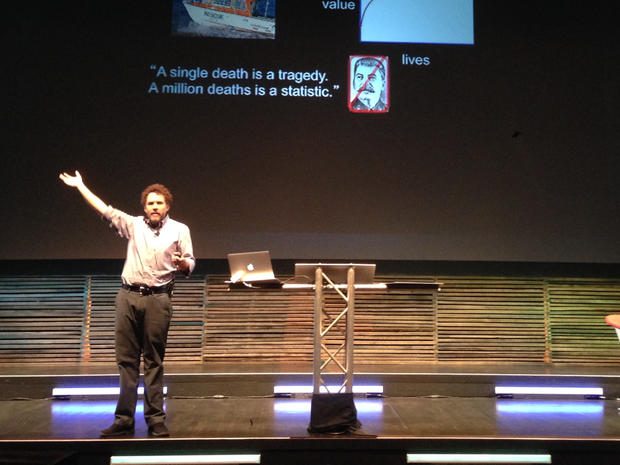By Conner Forrest | TechRepublic | October 2, 2014
The concept of tribalism, i.e. loyalty and dedication to one’s group or “tribe,” is evident, to some degree, in every part of daily life. In professional organizations, we often refer to these tribes as silos, and conversations and relations among these silos are often tense.
At the 14th annual IdeaFestival in Louisville, Kentucky Joshua D. Greene, psychology professor and director of the Moral Cognition Lab at Harvard University, gave a presentation called “Us/Them,” breaking down why it is difficult to encourage cooperation between groups or tribes and offering some ways to get past it.
Greene opened by explaining the economics theory of the Tragedy of the Commons, which states that in certain situations when everybody does what’s best for themselves, it leaves everyone else worse off. It is the concept of me versus the concept of us.
Even if we agree that we are going to cooperate, there are many open questions about the terms of the cooperation. Greene posed the question of how, in a multi-tribal world, are we going to find rules and systems to get along.

Joshua Greene speaks on tribalism at IdeaFestival in Louisville, KY.
Image: Conner Forrest/TechRepublic
Greene’s research suggests that fast thinking makes people more cooperative within groups, or silos. An experiment conducted at Harvard showed a correlation between the speed at which the decision was made and the level of cooperation that is shown.
The research also showed that people who trust the other people in their own life make faster decisions and tend to be more cooperative, and people who don’t trust the people around them in everyday life were slower to make decisions and more selfish.
These quick thoughts come from the Amygdala, which is also one of the fear centers of the brain. Because of this, fast thinking can also get us into trouble as we have evolved to take care of people within our immediate tribes, not people on the other side of the world. It’s natural for employees to want to do what they perceive is best for the people in their immediate groups. For example, IT employees will look tend to instinctively make decisions in the best interest of the IT department.
Greene said that to solve modern moral problems, we must start by asking questions in order to try to get to two answers:
Who really matters? The answer is everyone, equally.
What really matters? The answer is happiness.
According to Greene, groups must be willing to step back from fast thinking to better the potential cooperation between groups. While gut reactions work well in certain situations, they should be avoided when trying to compromise with another group or tribe.
Trust among your organization’s groups is the essential component to solve these problems. Trust has to be built incrementally, and through experience. Greene recommends a third party to guarantee an experience, to assure that terms of a cooperation will be followed. This will help your silos to eventually trust one another to follow rules of cooperation without a third party present.
For example, if there are two conflicting departments within an organization, it might be beneficial to bring in a neutral, third party to drive communication and build trust between those groups. An HR director or department head could lead the discussion and follow up to insure that the two departments are following the terms that were agreed upon.
In order to pursue a common goal, groups in your organization have to trust one another and be willing to cooperate and compromise. Recognizing tribalism and working against unifies your people under around your mission.



